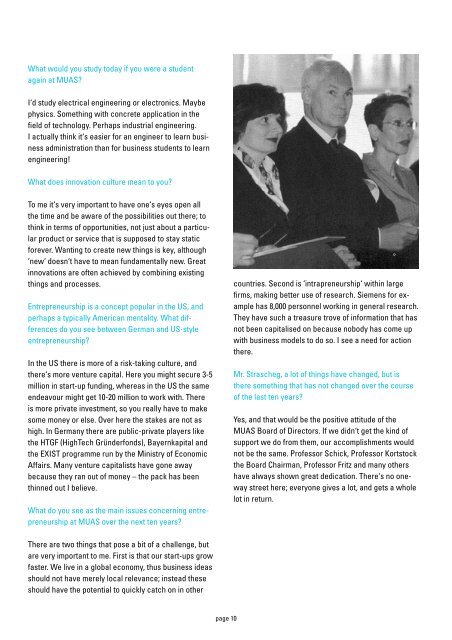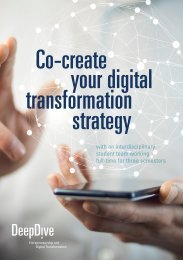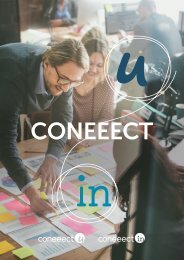Annual Report 2012 / 2013
Create successful ePaper yourself
Turn your PDF publications into a flip-book with our unique Google optimized e-Paper software.
What would you study today if you were a student<br />
again at MUAS?<br />
I‘d study electrical engineering or electronics. Maybe<br />
physics. Something with concrete application in the<br />
field of technology. Perhaps industrial engineering.<br />
I actually think it‘s easier for an engineer to learn business<br />
administration than for business students to learn<br />
engineering!<br />
What does innovation culture mean to you?<br />
To me it‘s very important to have one‘s eyes open all<br />
the time and be aware of the possibilities out there; to<br />
think in terms of opportunities, not just about a particular<br />
product or service that is supposed to stay static<br />
forever. Wanting to create new things is key, although<br />
‘new‘ doesn‘t have to mean fundamentally new. Great<br />
innovations are often achieved by combining existing<br />
things and processes.<br />
Entrepreneurship is a concept popular in the US, and<br />
perhaps a typically American mentality. What differences<br />
do you see between German and US-style<br />
entrepreneurship?<br />
In the US there is more of a risk-taking culture, and<br />
there‘s more venture capital. Here you might secure 3-5<br />
million in start-up funding, whereas in the US the same<br />
endeavour might get 10-20 million to work with. There<br />
is more private investment, so you really have to make<br />
some money or else. Over here the stakes are not as<br />
high. In Germany there are public-private players like<br />
the HTGF (HighTech Gründerfonds), Bayernkapital and<br />
the EXIST programme run by the Ministry of Economic<br />
Affairs. Many venture capitalists have gone away<br />
because they ran out of money – the pack has been<br />
thinned out I believe.<br />
What do you see as the main issues concerning entrepreneurship<br />
at MUAS over the next ten years?<br />
There are two things that pose a bit of a challenge, but<br />
are very important to me. First is that our start-ups grow<br />
faster. We live in a global economy, thus business ideas<br />
should not have merely local relevance; instead these<br />
should have the potential to quickly catch on in other<br />
page 10<br />
countries. Second is ‘intrapreneurship‘ within large<br />
firms, making better use of research. Siemens for example<br />
has 8,000 personnel working in general research.<br />
They have such a treasure trove of information that has<br />
not been capitalised on because nobody has come up<br />
with business models to do so. I see a need for action<br />
there.<br />
Mr. Strascheg, a lot of things have changed, but is<br />
there something that has not changed over the course<br />
of the last ten years?<br />
Yes, and that would be the positive attitude of the<br />
MUAS Board of Directors. If we didn‘t get the kind of<br />
support we do from them, our accomplishments would<br />
not be the same. Professor Schick, Professor Kortstock<br />
the Board Chairman, Professor Fritz and many others<br />
have always shown great dedication. There‘s no oneway<br />
street here; everyone gives a lot, and gets a whole<br />
lot in return.
















